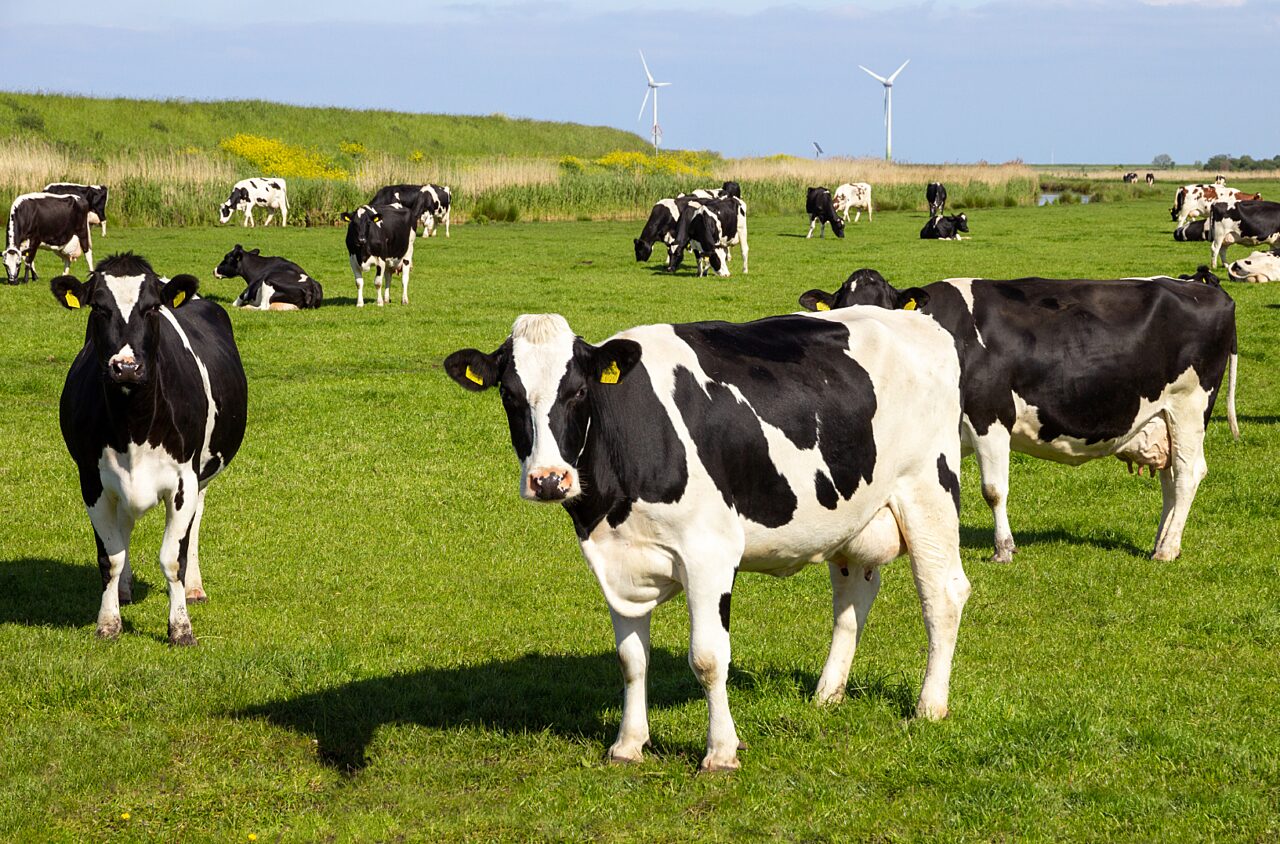
Join the Organic Trust
Everything you need to know about converting to organic farming

APPLICATION
1 - Complete an application form by clicking here - or for a printer-friendly version you can click here.
2 - To make an application for payment under the Organic Farming Scheme, you must be registered on www.agfood.ie - if you are not already registered, you can register via this link.
3 - Complete some supporting documentation: an Animal Health Plan (needs to be stamped by a Vet), a Schedule of Areas, a Field History, a Crop Rotation Plan and a Commonage Form.
We will notify DAFM that we have received your completed registration form and DAFM will activate your www.agfood.ie entry to facilitate your online OFS application. The OT will let you know once this has been activated. You then must complete the online OFS application by the closing date.

INSPECTION
Following review of your application, we will organise an inspection of your holding at a time convenient to you.

CERTIFICATION
Your inspector will submit an inspection report which will be reviewed by our certification panel. If everything is in order you will be issued with your first in-conversion licence.

APPROVED ORGANIC TRAINING COURSE
Finally, you must also complete the 25 hour Organic Production Principles Course if you have not already completed same. Providers of this course Teagasc and NOTS who are running the courses online, more information can be found here:
NOTS
Please note that you will be required to demonstrate your completion of the mandatory organic production course.
If you would like to read some more detailed information on everything that's involved, you can check out the information booklet below - consider this your roadmap to becoming organically certified!
If you get into any difficulty, an informational step-by-step video on the application form is just below.
If you would like further advice, a list of organic advisors is available for your perusal.
Meet Our Members
Profile of an organic Beef farm
Pat Booth at Killone Organic Farm
Profile of an organic Vegetable farm
Hilda and Dominic Crampton at Castleruddery Organic Farm
Profile of an organic Dairy farm
Gavin Lynch at Hells Kettle Organic Farm
Profile of an organic Tillage farm
Jenny McNally at McNally Family Farm
Frequently asked Questions
OFS / Grant Aid
General questions on eligibility for the Organic Farming Scheme
| Type | Year 1-2 (in-conversion) <<70ha €/ha | Year 1-2 (in-conversion) >70ha €/ha | Year 3-5 (in-conversion) <<70ha €/ha | Year 3-5 (in-conversion) >70ha €/ha |
|---|---|---|---|---|
| Drystock | 300 | 60 | 250 | 30 |
| Tillage | 320 | 60 | 270 | 30 |
| Dairy | 350 | 60 | 300 | 30 |
| Horticulture | 800 | 60 | 600 | 30 |
The new scheme will be opening in Oct/Nov 2024 but you will not have to commence Organic farming until 1st January 2025.
You must carry a minimum of 0.1 LU per hectare (6.5kg Organic Nitrate per ha) over the full year if you are a livestock producer. All Organic farmers must be stocked below the limit of 170kg of Nitrogen/year/ha. 1 LU equals 65kg Organic Nitrogen.
There is a minimum 1 hectare required for Horticulture and 3 hectares for all other enterprises. Payments are reduced when 70 hectares are exceeded but this land can still be added.
The contract for OFS is 5 years.
To be eligible you must meet the minimum entry requirements listed in the T&C’s. You can view the T&C's from the 2024 tranche here. The 2025 T&C's are expected to be published shortly.
Yes, but as with many schemes some parameters don’t allow for double payments on land parcels. Payment will be forgone in some cases where an overlap occurs. For more information, see the full list of T&Cs by clicking here.
The Organic Capital Investment Scheme (OCIS) will be available to Organic farmers only, as a sub-branch of TAMS. You can view the full list of T&C's by clicking here.
You can complete your application paperwork for Organic Trust and your OFS application yourself or we can provide you with a list of Organic specialist advisors. They do not need to replace your current advisor but do need to have expertise in organics specifically.
This is an option for some farmers who do not wish to enter their whole enterprise into Organics. You must ensure that there is no risk of parallel production i.e. you cannot have an Organic cattle enterprise and a non-organic cattle enterprise. But you could have an Organic Cereal enterprise and a non-organic cattle enterprise.
You must ensure your lease meets the length of the OFS contract. A minimum of 5 years is required to apply.
No previous training is required. A course in the Principles of Organic Farming must be completed within a specified amount of time to receive payment. This is a 25 hour course. You must upload the certificate on www.agfood.ie once the course is completed. The deadline will be announced with the OFS T&Cs. Further information on the approved courses can be found here:
Yes. Commonage can be grazed but a commonage agreement must be signed. Commonage is not eligible for Organic payment.
Non-organic and in-conversion/organic livestock of the same species cannot graze in-conversion land. Non-organic and in-conversion/organic of different species can graze the land together as long as a grazing agreement for the non-organic livestock is in place and they do not graze more than 120 days/year. All stock must be managed organically in every respect while on the land.
Animal Housing
Frequently asked questions on organic Animal Housing
Yes, livestock can be outwintered but not at a rate higher than 1 LSU per hectare. Sacrifice paddocks are not permitted, and poaching must be minimal. Outwintering is acceptable where conditions permit provided that breeds are suitably hardy and/or there is adequate shelter to prevent any welfare problems.
All stock must have access to at least 50% bedded area. Straw/Rushes and Woodchip/Sawdust are most commonly used and permitted in organics. Woodchip/Sawdust cannot be from treated timber but straw may be from a conventional farm. Sufficient bedding must be provided for stock while housed. Peat is not permitted as it is not a renewable source of bedding.
Slats may be used but cannot be greater than 50% of the shed. If slats are larger than the solid area, the shed must be stocked to the maximum capacity of the solid area and not the slatted area.
Cubicles are permitted. They must be bedded with a bedding material. Mats can be used but additional bedding must be applied on top.
Cubicles must be of optimum size for the animals on the holding with regard to welfare. At least 3m2 of accessible/available floor area per individual animal must be allowed for dairy cows and larger animals, with lesser areas for smaller animals; cubicles with dimensions of 2.62m2 can be permitted provided the overall solid-bedded area is compliant with the Organic Food and Farming Standards in Ireland e.g. a 600 kg animal would require an overall solid-bedded area of 3m2, therefore, where cubicles less than 3m2 are used, an additional solid-bedded area must be made available to the animals.
Animals must have free access to cubicles and must have an adequate lounging area. Cubicles must be clean and dry and bedded at all times.
| LIvestock type: | Live weight (Kg:) | m2 per head*: |
|---|---|---|
| Cattle | Up to 100 | 1.5 |
| Cattle | Up to 200 | 2.5 |
| Cattle | Up to 350 | 4.0 |
| Cattle | Over 350 | 5 with a minimum of 1m2 per 100Kg |
| Dairy Cows | N/a | 6 |
| Breeding Bulls | N/a | 10 |
| Sheep | N/a | 1.5 |
| Lambs | N/a | 0.35 |
| Goats | N/a | 1.5 |
| Kids | N/a | 0.35 |
Animal Health
Frequently asked questions on Animal Health
An Animal Health Plan is required even when only vaccines are administered. This must be updated according to the livestock characteristics and needs. It should contain any likely problems usually occurring on the holding - for example, mineral deficiencies and the use of licks. Treatments must be recorded in the Record Book provided by the Organic Trust. The Animal Health Plan template is available here and it must be stamped and signed by a vet.
No synchronization or hormonal treatments are permitted in Organic farming. Natural conception and AI are only permitted.
Animal welfare is the number one priority and antibiotics are permitted for use when the animal health and welfare are affected. Stricter withdrawal periods apply in organics and antibiotics must be recommended by a vet - they cannot be used as a preventative measure. Please see below how many courses of antibiotics are allowed until the respective animal loses its organic status or an in-conversion period of 15 months is applied.
- Animals for meat consumption: 1 course of treatment of chemically synthesised allopathic veterinary medicinal products or antibiotics is allowed within a twelve-month period.
- Animals for breeding: 2 courses of treatment within a twelve-month period.
- For dairy mastitis control: 2 courses of treatment for dairy mastitis control are allowed within a twelve-month period
Dosing is permitted for livestock but evidence of requirement is needed - a fecal sample result or liver analysis will suffice. There are many permitted products in organics and it is best to check with the Organic Trust prior to purchase.
Dips and spot on are permitted but any product containing an organophosphate is strictly prohibited. There are many permitted products in organics and it is best to check with the Organic Trust before purchase.
Mineral buckets and boluses are permitted if required and should be included on the Animal Health Plan if you intend to use them. Please ensure there are no feed additives or genetically-modified ingredients in the licks.
There are a number of suppliers of Organic concentrates in Ireland - they are more expensive, so some farmers decide to feed organic grain mixes instead. Some of our members supply these mixes in bulk. Feed bought in must be organic.
All veterinary treatments observe double the normal withdrawal period. It is important to check with Organic processors if they have stricter requirements in relation to veterinary treatments.
Horticulture and Tillage
Frequently asked questions for Horticulture and Tillage farmers
There are several providers of Organic seed in Ireland. Organic seed should be sought in the first instance. If you cannot source Organic seed and it is not available on the Organic Seed Database, you must obtain a derogation for non-organic seed from the Organic Trust prior to sowing. The non-organic seed must be undressed/untreated.
Animal manures may be imported as long as they don’t come from a factory farming setting. Soil tests in the last five years must show justification for the import. Composts with a PAS100 certificate may be used on an Organic holding.
Chemical fertilisers are not permitted for use on Organic farms. There are some alternatives available for nutrients and these are naturally-derived products, i.e. Patent Kali. Soil tests in the last five years must show justification for the import. Granulated and powder Lime are both permitted if warranted by soil test results.
Some plant protection products are permitted for specific crops, i.e. Bluestone for blight in potatoes and Organic slug pellets. Pesticides or herbicides are not permitted. It is best to check with the Organic Trust if a product is permitted before use.
Sheep
Frequently Asked Questions for organic sheep farmers
Lambs born and conceived after conversion started will achieve Organic status simultaneously with your land.
Your current stock can be retained for breeding purpose only. Ewes kept from before conversion began will never achieve Organic status but may be used for breeding.
You can visit the Organic Trading Hub if you would like to buy organic sheep from private organic farmers. Alternatively, there are dedicated organic marts throughout Ireland - you can view a list of these on the Organic Marts page on our website.
IMPORTANT: Any organic stock brought onto an in-conversion farm in the first 3 months from the start of the conversion period lose their organic status.
Organic livestock should be sourced in the first instance. If not available, a derogation for non-organic breeding livestock may be attained from Organic Trust. You may apply for up to 20% of your current adult stock numbers (adult = 1 year and older) prior to purchase. Non-organic females must be nulliparous (maiden).
Non-organic breeding rams may be brought onto the holding at any point. As of 01/01/2024, a derogation must be attained for this prior to purchase. The purchase of a ram is not included in the 20% mentioned earlier.
You can visit the Organic Trading Hub if you would like to sell organic sheep. Alternatively, there are dedicated organic marts throughout Ireland - you can view a list of these on the Organic Marts page on our website.
IMPORTANT: Any organic stock brought onto an in-conversion farm in the first 3 months from the start of the conversion period lose their organic status.
Cattle
Frequently Asked Questions for organic cattle farmers
You can visit the Organic Trading Hub if you would like to buy organic cattle from private organic farmers. Alternatively, there are dedicated organic marts throughout Ireland - you can view a list of these on the Organic Marts page on our website.
IMPORTANT: Any organic stock brought onto an in-conversion farm in the first 3 months from the start of the conversion period lose their organic status.
Organic livestock should be sourced in the first instance. If not available, a derogation for non-organic breeding livestock may be attained from Organic Trust. You may apply for up to 10% of your current adult stock numbers (adult = 2 years and older) prior to purchase. Non-organic females must be nulliparous (maiden).
Non-organic breeding bulls may be brought onto the holding at any point. As of 01/01/2024, a derogation must be attained for this prior to purchase. The purchase of a bull is not included in the 10% mentioned earlier.
Your current stock can be retained for breeding purpose only. Cows kept from before conversion began will never achieve Organic status but may be used for breeding.
Calves born 3 months after conversion started will achieve Organic status simultaneously with your land.
Cattle can be sold privately, in marts or to organic processors. Cattle can still be sold conventionally if this is required. During the in-conversion period the animals cannot be sold as organic.
You can visit the Organic Trading Hub if you would like to buy organic cattle. Alternatively, there are dedicated organic marts throughout Ireland - you can view a list of these on the Organic Marts page on our website.
IMPORTANT: Any organic stock brought onto an in-conversion farm in the first 3 months from the start of the conversion period lose their organic status.
Yes. However, sexed semen is not permitted. Any non-organic male breeding animal may be purchased as required for breeding purposes.

Contact
ORGANIC TRUST CLG
Office A1, Town Centre House
Naas Town Centre,
Dublin Road, Naas,
Naas Co. Kildare,
Ireland
W91 KVX8,
Tel: +353 45 882 377
Details
- Reg. No. 193345 - Organic Trust CLG
- A Voluntary Organisation
- Company Limited by Guarantee EU, DEFRA & Department of Agriculture, Food & The Marine in Ireland
- Approved Organic Certification Body Codes: IE-ORG-03 (Republic of Ireland) and GB-ORG-09 (Northern Ireland and UK).


